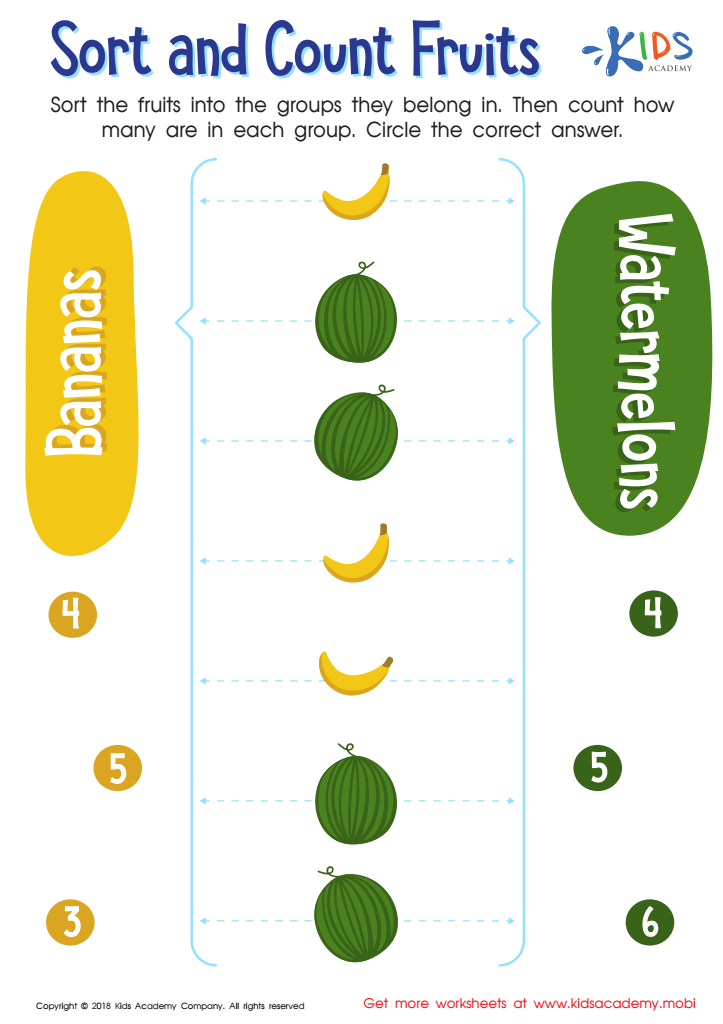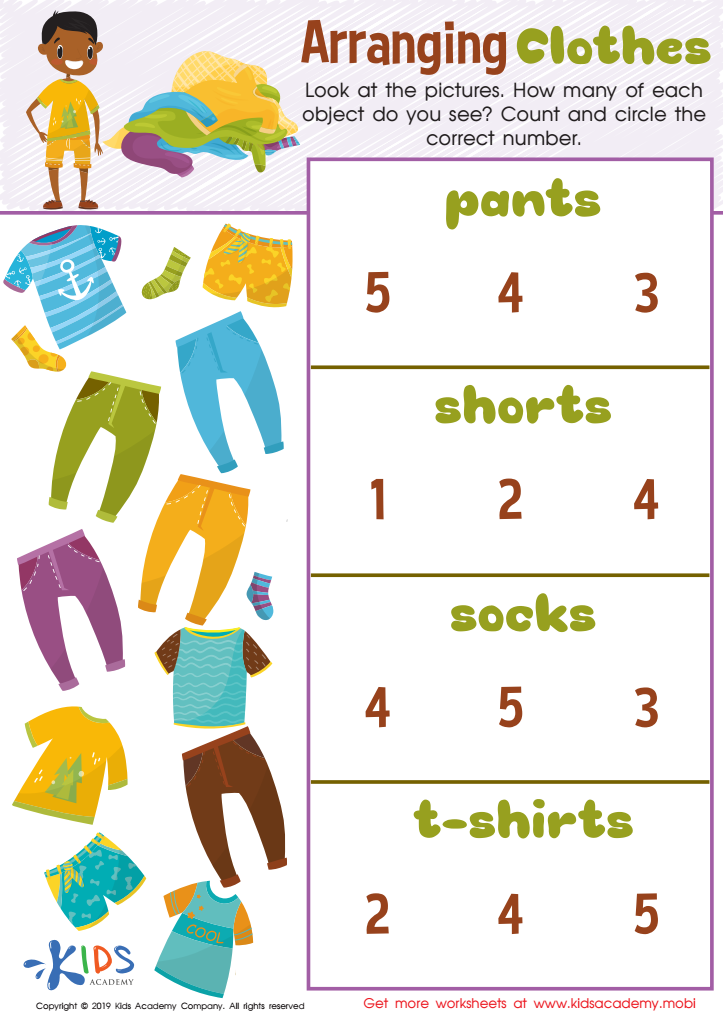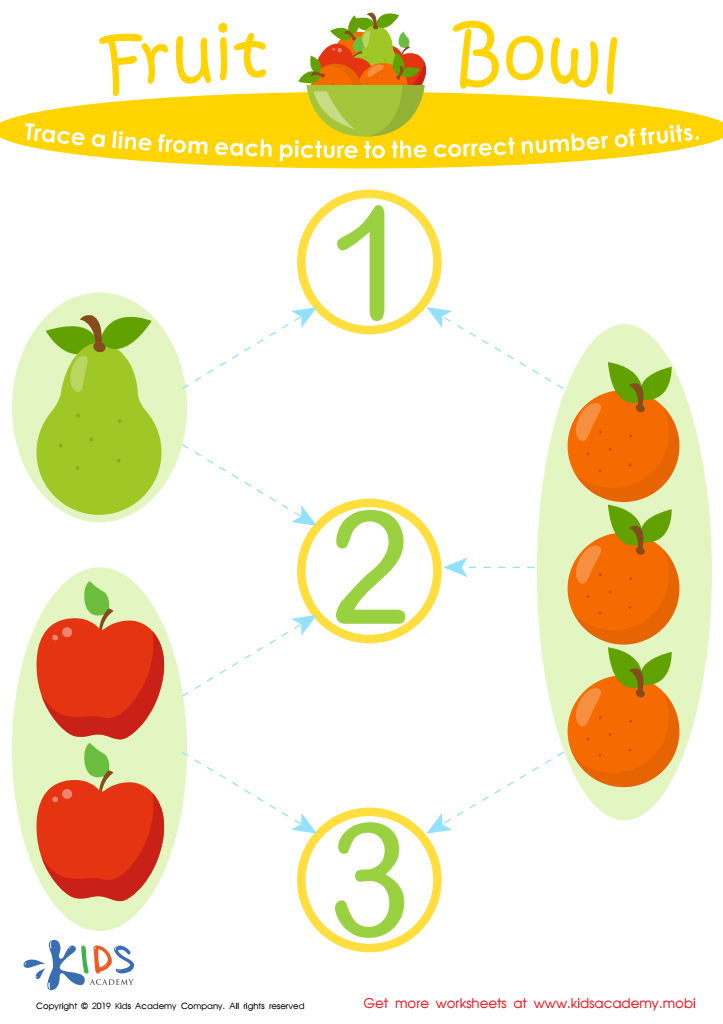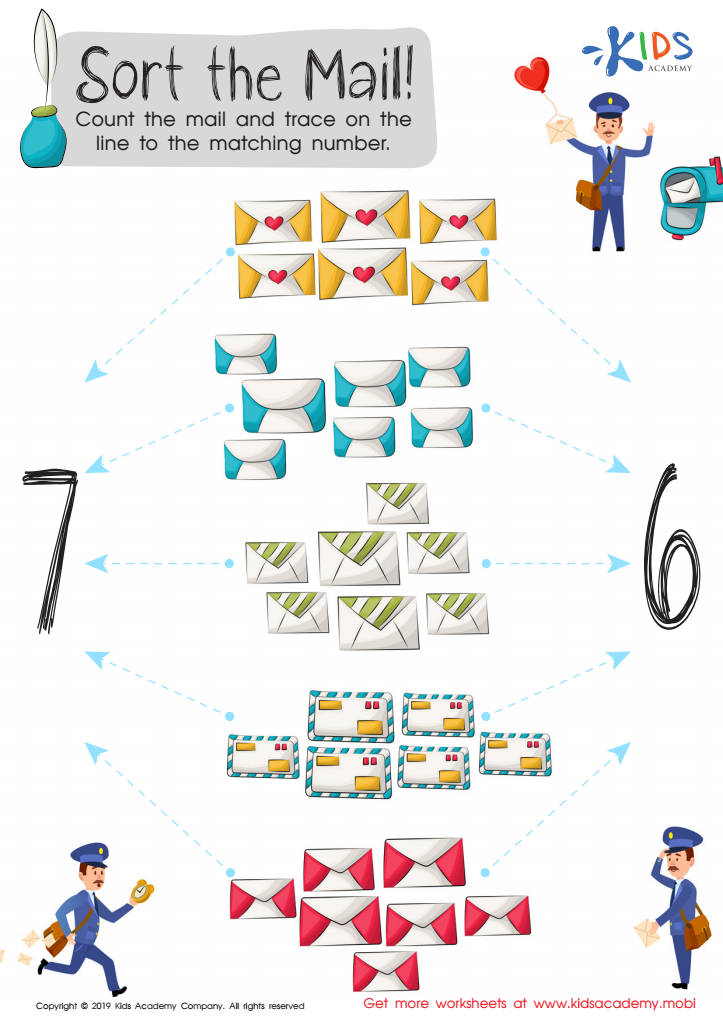Sorting skills Numbers Worksheets for Ages 3-8
5 filtered results
-
From - To
Enhance your child's numerical abilities with our engaging Sorting Skills Numbers Worksheets, designed for ages 3-8. These printable worksheets offer fun, interactive activities focused on learning numbers, boosting overall math skills, and developing essential cognitive abilities. Whether sorting, classifying, or organizing objects by various attributes, these carefully crafted exercises help build a strong foundation in early math concepts. Perfect for both classroom and home environments, our worksheets are an excellent resource for young learners to practice and refine their sorting skills, making math learning enjoyable and effective. Unlock your child’s potential with our vibrant, educational worksheets today!


Sort and Count Fruits Worksheet


Sort and Count to the Moon Worksheet


Arranging Clothes Worksheet


Fruit Bowl Worksheet


Sort the Mail Worksheet
Sorting skills in numbers are foundational for children aged 3-8, serving as a cornerstone for early mathematical understanding and critical thinking. By learning to sort numbers, children develop essential problem-solving abilities and enhance their ability to recognize patterns and relationships, pivotal for higher-level math.
For parents and teachers, nurturing these skills at an early stage is crucial for several reasons:
-
Cognitive Development: Sorting numbers sharpens children’s cognitive abilities by encouraging them to categorize, compare, and organize information, which is fundamental to brain growth and intellectual development.
-
Mathematical Proficiency: Early exposure to sorting builds a strong mathematical foundation. Children get accustomed to concepts like greater than, less than, and equality, which are vital in tackling more complex arithmetic problems in later years.
-
Logical Thinking: Sorting exercises promote logical reasoning. They teach children how to make informed decisions based on numerical attributes, sharpening their analytical skills that are useful beyond mathematics.
-
Confidence Building: Mastering sorting helps boost confidence. Children who excel in numerical tasks feel more competent and are likely to have a positive attitude towards learning and problem-solving in various subjects.
Educators and parents play a pivotal role in guiding young learners through engaging sorting activities, ensuring these skills are developed in a fun, enriching manner. This positive engagement sets a firm foundation for their future learning journey.
 Assign to My Students
Assign to My Students




















